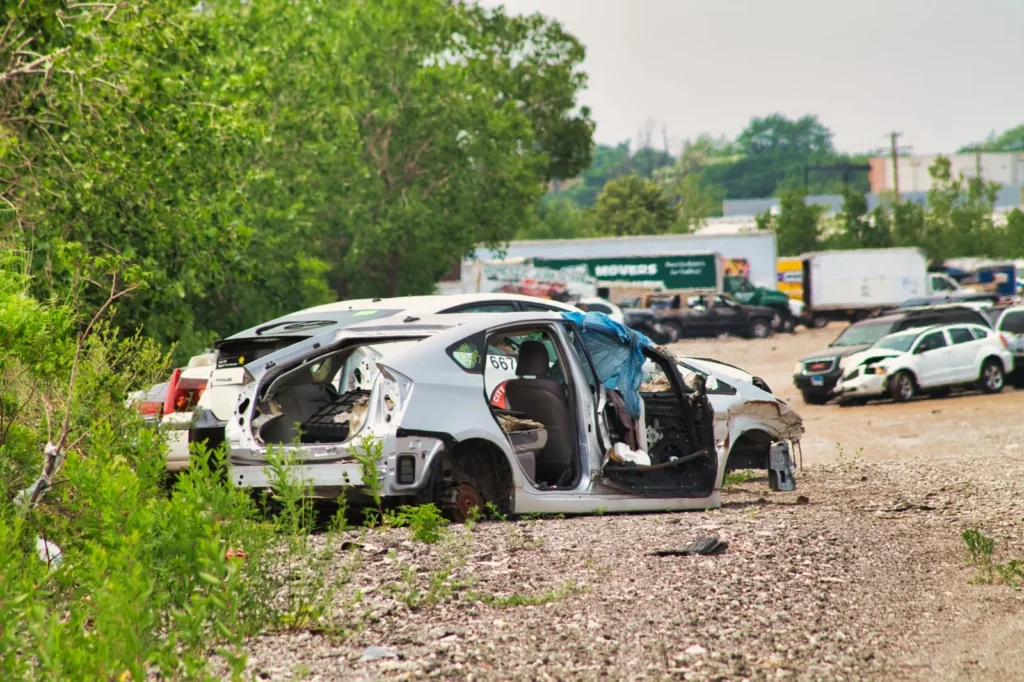A car accident can be a traumatic event, often leaving lasting emotional scars. In addition to physical injuries, many individuals experience anxiety and depression, which can hinder their recovery and daily functioning.
Bankrate notes that even when no one is physically hurt, survivors of car crashes frequently experience severe emotional fallout, such as PTSD. Between 21 and 67% of collision survivors report having depressive symptoms, and about 50% report having a driving phobia. These psychological difficulties may have a substantial impact on their general mental health as well as how they interact with cars in the future.
A multimodal strategy that incorporates lifestyle modifications, psychological support, and doable actions is needed to address these mental health issues. We’ll look at practical methods in this post for dealing with sadness and anxiety after a vehicle accident.
Seeking Professional Help
After a car accident, it’s crucial to address any psychological distress with the help of professionals. Anxiety, sadness, and post-traumatic stress disorder (PTSD) are common among survivors.
In addition to offering therapeutic procedures like cognitive behavioral therapy and medication if necessary, psychologists and psychiatrists may be a great source of support. Early intervention can help people build coping skills and stop their symptoms from getting worse.
ChoosingTherapy.com states that CBT helps PTSD victims recognize and deal with harmful thinking and emotional patterns associated with their trauma. Through the process of identifying the causes of these emotions, CBT can lessen the intensity of anxiety and other unpleasant symptoms. Typically, there are 12–20 weekly sessions of therapy, lasting around 50 minutes each.
Moreover, therapy offers a safe space to process emotions and navigate the complexities of recovery. Establishing a connection with a mental health professional is a vital step toward healing and managing the emotional aftermath of a traumatic event.
Engaging in Self-Care Practices
Taking care of oneself is crucial for controlling anxiety and feelings of depression, particularly following a vehicle accident. Regular physical exercise, such as yoga, walking, or light stretching, might help elevate mood and lower stress levels.
Healthline highlights that nutrition also plays a crucial role; a balanced diet supports overall mental health. A diet high in fruits, whole grains, vegetables, and legumes may help lower the incidence of depressive symptoms by 10%. Additionally, two noteworthy studies that specifically assessed the effect of the Mediterranean diet on depression produced encouraging findings.
How can self-care improve emotional well-being during recovery?
Mindfulness practices like meditation and deep breathing exercises can provide relief from anxious thoughts and promote relaxation. Maintaining a consistent sleep schedule is another critical component of self-care, as adequate rest is necessary for emotional resilience. Individuals can enhance their emotional well-being and foster a sense of control during recovery by prioritizing self-care.
Seeking Financial Relief with the Help of Local Lawyers
Financial concerns can worsen anxiety and depression following a car accident. Medical bills, vehicle repairs, and lost wages may create significant stress.
According to Springs Law Group, consulting with a local lawyer specializing in personal injury or accident law can be a valuable resource. These attorneys can help you navigate the complexity of claims and seek recompense for losses. For example, in Colorado, car accidents are an unfortunate and frequent occurrence, with significant impacts on victims’ lives.
KRDO recently reported a fatal event that occurred on June 16, 2024, near the junction of Fountain Boulevard and Powers Boulevard in Colorado Springs. The crash, caused by a driver running a red light, resulted in two fatalities and one injury. Incidents like these highlight the need for victims to seek proper legal guidance and financial relief.
A Colorado Springs auto accident attorney may be quite beneficial to those dealing with the aftermath of such events. These local legal professionals specialize in navigating the complexities of claims, medical bills, and compensation for pain and suffering. They help make sure that victims obtain the compensation they deserve, giving much-needed financial assistance during a difficult period.
Utilizing Community Resources
Community resources can offer additional support for those coping with anxiety and depression after a car accident. Support groups, whether in person or online, allow sharing experiences and interacting with people who understand similar issues.
How can local resources help with accident recovery?
Local mental health organizations may offer free or low-cost counseling services, workshops, and educational programs. Additionally, community centers often host activities that promote social engagement and physical well-being, which can be particularly beneficial during recovery.
Utilizing these resources can create a network of support, reducing feelings of isolation and offering practical assistance in managing the aftermath of an accident.
Establishing a Routine and Setting Goals
Establishing a routine and setting achievable goals can help individuals regain a sense of normalcy and purpose after a car accident. A structured daily schedule can provide stability and reduce feelings of uncertainty, which are often associated with anxiety and depression.
How can setting goals contribute to recovery?
Setting small, attainable goals can foster a sense of accomplishment and motivation, gradually building confidence. Whether it’s returning to work, resuming hobbies, or engaging in new activities, these goals can serve as markers of progress.
Individuals can create a positive trajectory for their recovery, promoting mental well-being and a sense of empowerment by focusing on manageable steps.
A car accident’s impact goes beyond physical injuries. Anxiety and depression can linger, but there is hope.
Individuals can navigate the path to healing by seeking professional help, prioritizing self-care, addressing financial concerns, and utilizing community resources. Remember, you are not alone. With a holistic approach, you can restore your life and proceed with a new feeling of power and well-being.







